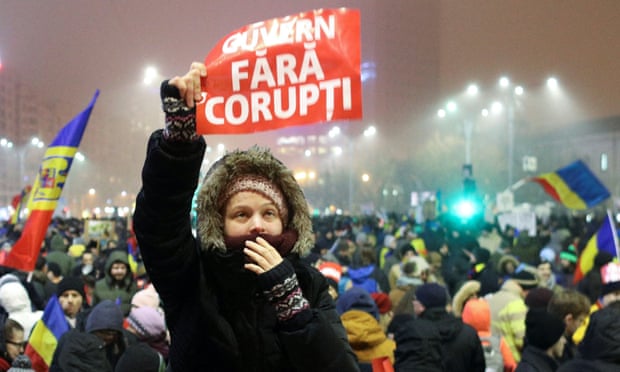One in five people in parts of EU pay bribes for healthcare, survey finds
Corruption report says third of EU residents used personal connections to access care during Covid crisis.
Almost a third of residents in the EU relied on personal connections to access healthcare during the Covid crisis, and around one in five in Romania, Bulgaria, Hungary and Lithuania paid a bribe for such services, a report on corruption has found.
Across the EU’s 27 member states, nearly two-thirds (62%) of the 40,000 respondents in a survey conducted by Transparency International said corruption in their government was a major problem and three-quarters (76%) said it had been stagnating or getting worse.
The authors of the NGO’s report, The Global Corruption Barometer – the European Union, said the findings were particularly worrying given that member states are preparing to allocate billions of euros for post-pandemic recovery.
The European Commission is expected imminently to approve national plans for the spending of €800bn (£687bn) that will be jointly raised on the financial markets.
“The EU is often seen as a bastion of integrity, but these findings show that countries across the region remain vulnerable to the insidious effects of corruption,” said Delia Ferreira Rubio, the chair of Transparency International. “During a health crisis, using personal connections to access public services can be as damaging as paying bribes. Lives can be lost when connected people get a Covid-19 vaccine or medical treatment before those with more urgent needs. It’s crucial that governments across the EU redouble their efforts to ensure a fair and equitable recovery from the ongoing pandemic.”
The report paints a picture of discontent about the cosy relationships between big business and governments and a high degree of direct involvement by citizens in corrupt practices to access public services.
While only 6% of people across the region said they had found it necessary to pay a bribe to obtain or access health services, the survey found that 29% had relied on personal connections, with that experience most common in the Czech Republic (54%), Portugal (46%) and Hungary (41%).
The highest proportions of people who said they had given a bribe to secure healthcare were in Romania (22%), Bulgaria (19%), Hungary (17%), Lithuania (17%) and Croatia (14%).
The use of bribes to access healthcare was also comparatively common in Belgium (10%), Austria (9%) and Greece (9%), according to the survey, which was carried out between October and December last year.
Cyprus had the highest proportion of respondents (65%) saying they believed corruption had increased over the past year, apparently fuelled by scandals related to Cyprus’s “golden passports” scheme under which it has been found that dozens of convicted criminals, fugitives and politically exposed individuals have bought citizenship.
Less than 20% of people living in Denmark and Finland thought corruption in government was a big problem in their country, while more than 85% of those in Bulgaria, Croatia, Cyprus, Italy, Portugal and Spain believed it was.
There was no country in which a majority of citizens thought corruption was decreasing. The most positive results came from Slovakia, where 39% of citizens thought there was a decline. During 2020, in the wake of the 2018 murder of Ján Kuciak, an investigative journalist, and his fiancee, dozens of Slovak law enforcement officials were charged with corruption.

